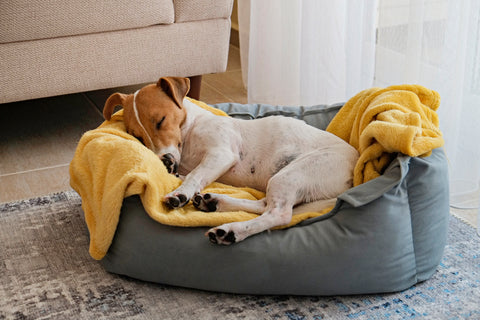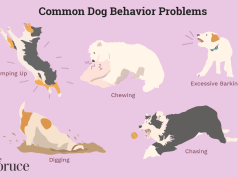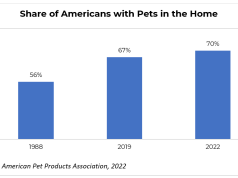After adopting a dog, schedule a vet visit and begin training immediately. Ensure your new pet feels safe and comfortable.
Adopting a dog is an exciting and rewarding experience. New pet owners should prioritize their dog’s health and well-being from the start. Establishing a relationship with a veterinarian ensures your dog receives necessary vaccinations and a health check-up. Training helps in building a strong bond and ensures good behavior.
Creating a safe, comfortable environment helps your dog adjust to their new home. Providing nutritious food, plenty of exercise, and social interaction are crucial. Consistency in routines and positive reinforcement promotes a happy, well-adjusted pet. Understanding these essentials ensures a smooth transition and a happy life for your new furry friend.
Preparing Your Home
Keep dangerous items out of reach. Store cleaning supplies in high cabinets. Secure trash cans with lids. Remove small objects that can be swallowed. Cover electrical cords. Close off rooms where dogs shouldn’t go. Use baby gates if needed. Check your fence for gaps. Your dog should not escape.
| Item | Description |
|---|---|
| Food and Water Bowls | Sturdy, non-slip bowls for meals |
| Leash and Collar | For walks and identification |
| Dog Bed | Comfortable place to sleep |
| Crate | Safe space for rest and travel |
| Toys | For play and mental stimulation |
| Grooming Supplies | Brush, shampoo, and nail clippers |
First Day Home
Your new dog needs a safe space. Choose a quiet room or a corner. Put a bed and some toys there. Ensure there is fresh water available. This helps the dog feel secure. Keep the area calm and quiet. Let your dog explore this space at their own pace.
Introduce your dog to family members slowly. Let each person meet the dog one by one. Use calm voices and gentle pets. Allow the dog to sniff and get comfortable. Supervise children closely during the introduction. Make sure everyone understands to be gentle and patient. This builds trust and comfort for your new pet.
Establishing A Routine
Set a regular feeding time for your dog. Feed them at the same time every day. This helps them feel secure. Divide meals into two or three portions. Use high-quality dog food. Always provide fresh water.
Take your dog outside after meals. Give them a bathroom break every few hours. Praise them when they go outside. This helps with house training. Keep a consistent schedule to avoid accidents.

Credit: m.youtube.com
Health Check
A veterinary visit is crucial after adopting a dog. The vet will check your dog’s overall health. Teeth, ears, and eyes will be examined. The vet may also test for diseases. The vet will give you tips on nutrition and exercise. This visit helps in building a health plan.
Vaccinations protect your dog from serious illnesses. Common vaccines include rabies, distemper, and parvovirus. Your vet will set up a vaccination schedule. Puppies need more frequent shots than adult dogs. Follow the schedule to ensure full protection.
Training Basics
Start house training your dog immediately. Take your dog outside often. Choose a specific spot for potty breaks. Reward your dog with treats and praise. Be patient and consistent. Accidents will happen, so stay calm and clean up. Never punish your dog for accidents. Use positive reinforcement to build good habits.
Teach your dog basic commands like “sit,” “stay,” and “come.” Use short, clear words. Reward your dog with treats and praise. Practice commands daily. Keep training sessions short, around 5-10 minutes. Be consistent with commands and rewards. Always end training on a positive note. Your dog will learn faster with consistent practice.

Credit: m.youtube.com
Socialization
Introduce your dog to other dogs slowly. Use a neutral place like a park. Always keep your dog on a leash. Watch for signs of stress or aggression. Let the dogs sniff each other. Praise your dog for calm behavior. Keep meetings short at first. Gradually increase the time spent together. This helps your dog feel safe and happy.
Take your dog to different places. Start with quiet areas. Walk on different surfaces like grass, sand, and gravel. Visit new places often to build confidence. Reward your dog with treats and praise. Avoid crowded places at first. Gradually introduce more busy areas. This will help your dog become well-adjusted.
Exercise Needs
Daily walks are very important for your new dog. Walks help your dog stay healthy and happy. Aim for at least 30 minutes of walking each day. Short walks are better for puppies and older dogs. Use a leash to keep your dog safe. Try to walk in different places to keep it interesting. Bring water for your dog on longer walks. Always clean up after your dog during walks.
Playtime is a great way to bond with your dog. Fetch is a fun game for most dogs. Use a ball or a frisbee. Tug-of-war is another good game. Use a rope toy for this. Hide-and-seek can be fun too. Hide treats or toys for your dog to find. Rotate toys to keep your dog interested. Always supervise playtime for safety.
Bonding Time
Praise your dog when it behaves well. Use treats to show love. Reward good actions with a pat or toy. Consistency is key in training. It helps your dog learn faster. Always be patient with your new friend. Dogs need time to understand new rules. Stay calm and gentle in your actions.
Spend time playing with your dog every day. Walks are great for bonding. Games like fetch can make your dog happy. Cuddling builds trust and love. Read books or watch shows about dog care. This helps you understand your dog better. Routine helps dogs feel safe. Try to keep a consistent schedule for feeding and walks.

Credit: www.petmate.com
Conclusion
Adopting a dog is a joyful and rewarding experience. Proper care and attention ensure a happy, healthy pet. Follow these tips to create a loving home for your new furry friend. Always consult your vet for personalized advice. Enjoy the journey with your loyal companion, and cherish every moment together.








